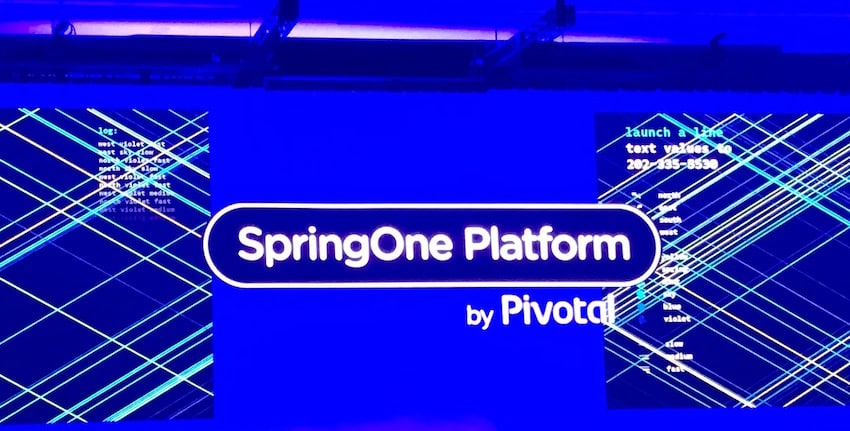Today at its SpringOne Platform Conference in Washington DC, Pivotal Software Inc. announced several updates to its Kubernetes and Hybrid/Multi-Cloud platforms. The company announced updates to its Pivotal Cloud Foundry (PCF) platform, Pivotal Container Service (PKS) based on Kubernetes, and its Pivotal Applications Service (PAS). These updates will simplify and expand multi-cloud support to customers.
Today at its SpringOne Platform Conference in Washington DC, Pivotal Software Inc. announced several updates to its Kubernetes and Hybrid/Multi-Cloud platforms. The company announced updates to its Pivotal Cloud Foundry (PCF) platform, Pivotal Container Service (PKS) based on Kubernetes, and its Pivotal Applications Service (PAS). These updates will simplify and expand multi-cloud support to customers.
Pivotal refers to its PCF as one of the world’s most powerful cloud-native platforms. The latest version, version 2.3, like the previous versions is powered by industrialized open source (the larger open source projects and what Pivotal sees as more useful to itself, that are tested and used for its customers) and is aimed at delivering superior business outcomes.
PCF Highlights
- PCF Healthwatch 1.4: Adds a more extensible UI to help operators understand the operational health of their platform across a variety of sources.
- Rapid Capacity Expansion Across Data Centers: Operators can now extend a single PCF deployment across multiple data center locations. This helps enterprises increase redundancy at the availability zone level for on-prem deployments with VMware vSphere and now OpenStack.
- Embedded OS Updates: Pivotal has updated the operating systems that underpin PAS (Ubuntu 16.04) and PAS for Windows (Windows Server v1803) deployments. This helps keep systems running smoothly, and offloads the burden of OS management.
Launched last year in collaboration with VMware and Google Cloud Platform, PKS is a commercial release of the open source Kubo technology that is aimed at helping Global 2000 companies operationalize Kubernetes. At the time we wrote, PKS intends to help operations teams deliver a hardened, maintainable container platform, while giving developers on-demand access to a production-ready environment featuring high availability, security, and multi-tenancy across private and public clouds. The adoption of Kubernetes is accelerating as is the interest in technology that supports it.
Upcoming PKS 1.2 Release Highlights
- Support for AWS: PKS 1.2 will add support for AWS EC2. This new IaaS target will give customers more options for where to deploy PKS, expanding enterprise-grade Kubernetes, and will deliver a consistent operational experience on any supported cloud.
- Kubernetes 1.11: PKS 1.2 will include Kubernetes 1.11, the latest GKE compatible, stable version of Kubernetes. PKS 1.2 is also Cloud Native Computing Foundation (CNCF) certified for Kubernetes conformance, assuring workload and application portability across other certified Kubernetes distributions.
- User configurable logging options: PKS 1.2 will enable Developers to configure a namespace or cluster to emit logs to a specific destination, such as VMware vRealize Log Insight, without operator intervention.
Pivotal is taking its auto patches and updates and brought it to the Windows side of users as well. PAS also comes with a slew of new releases.
PAS 2.3 Release Highlights
- PAS for Windows: Now supports multi-buildpacks for .NET Framework applications. This feature provides a way for .NET developers to more easily consume app dependencies, like database drivers, Microsoft-provided frameworks, and partner integrations.
- Service Instance Sharing: Service instance sharing helps development teams be more productive. With this new feature, teams can easily and securely share data across microservices.
- Greater encryption of data in transit. “Secure by default” is easier to achieve due to more platform components using direct network encryption via Transport Layer Security (TLS).
Sign up for the StorageReview newsletter

